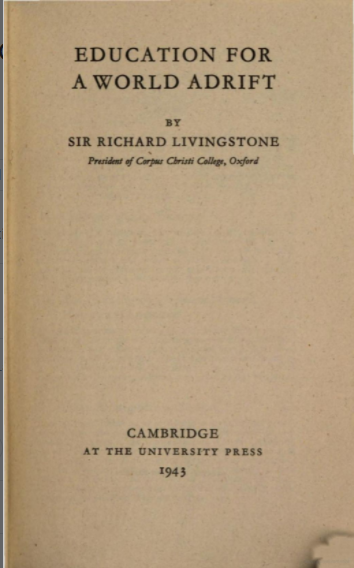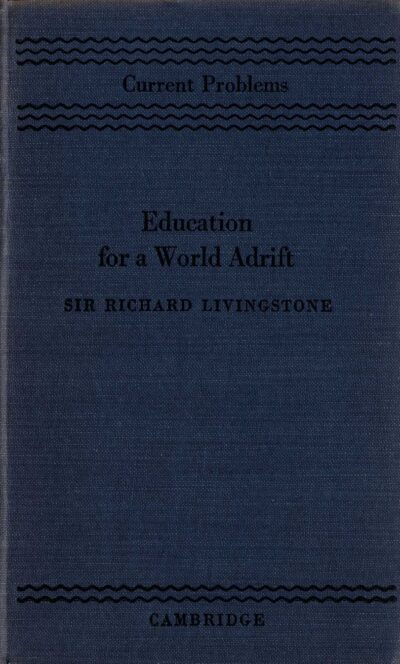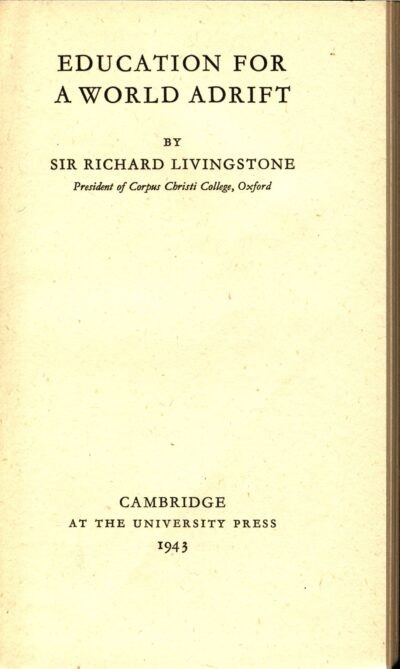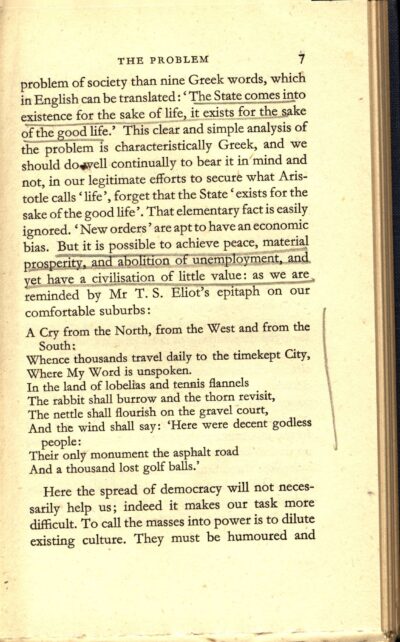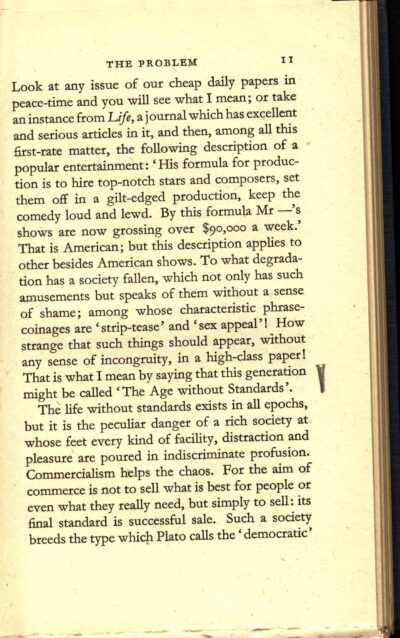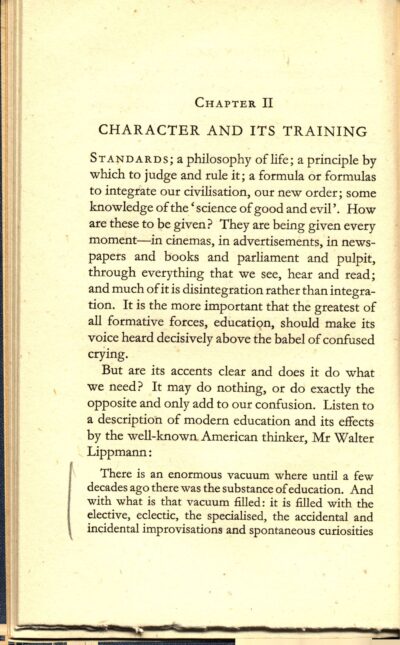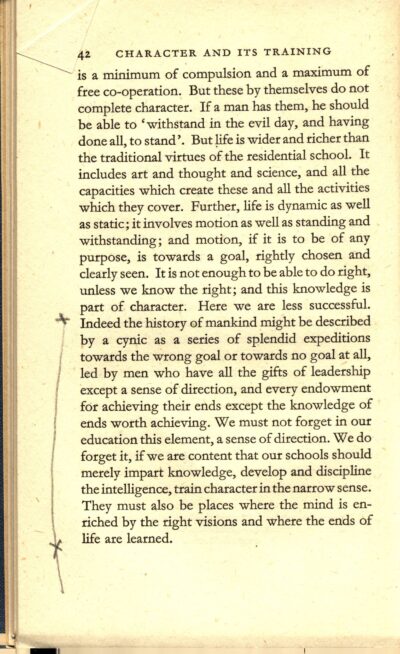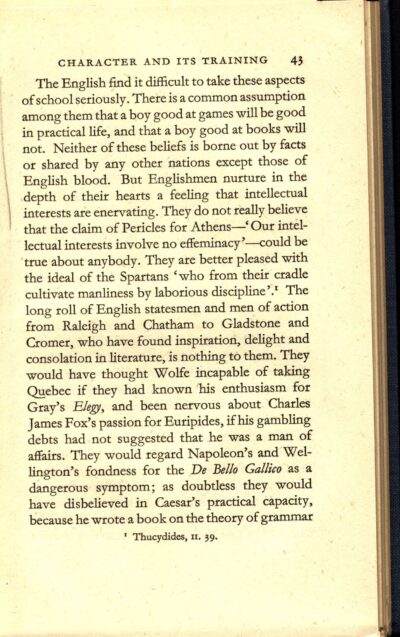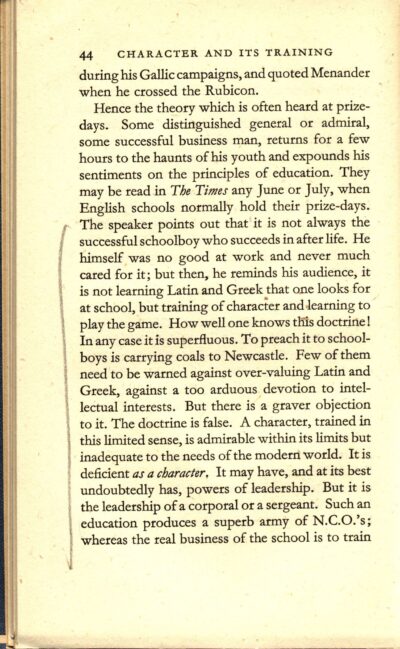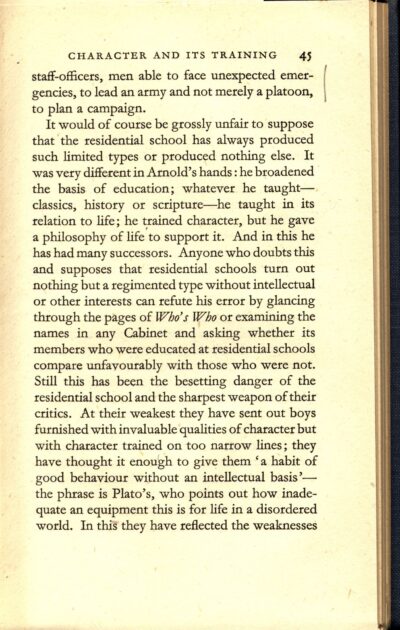Sir Richard Livingstone, Education for a World Adrift (1943)
Sir Richard Winn Livingstone was a classical scholar and university educator who became known for championing a classical notion of a liberal arts education. The son of an Anglican Vicar and the daughter of an Irish baron, Livingstone studied and taught at Campus Christi College Oxford before taking up a posting as Vice-Chancellor of Queen’s University Belfast. Returning to Oxford in 1933, he fought to broaden education by expanding educational opportunities for mature-age adults, instituting summer schools for colonial administrators, and playing a major role in the establishment of a residential college for women.
Education For a World Adrift is the second of a two-volume examination of the future of education written during the dark days of World War Two, a time in which humanity seemed to have lost control of its senses. ‘Between 1919 and 1939 we have thrown away a great victory with a rapidity and completeness perhaps unexampled in history’ – a terrible tragedy which education might prevent recurring. Livingstone’s main argument was that while education for scientific and commercial purposes was important, it had increasingly taken the place of the teaching of high-minded values and the philosophical pursuit of truth, something which would impart students with what they needed to formulate ‘a spiritual philosophy of life’.
This function of education was particularly important as society had gone through a period of intense social change, tearing down existing traditions which had given people a sense of direction on how to live a good life. Some of these changes had been positive, as was the case with the expansion of opportunities for the working class. These people naturally wanted to focus on using education to improve their material existence, but this had the unintended consequence of exaggerating the shift in the focus of education which Livingstone felt was having negative consequences:
‘As Plato said, the noblest of all studies is the study of what man should be and how he should live. It is also the most important of all studies: do we give it enough attention?’
Menzies’s copy of the book shows signs of significant use, including pencil lines in the margins throughout, and its thesis closely correlates with what we know of Menzies’s own views towards education. As Gregory Melleuish and Stephen Chavura argued at the First Robert Menzies Institute Annual Conference, Menzies saw the universities as an antidote to an increasingly materialistic world concerned only with power and pleasure. In essence, these bastions of higher learning would replace the centrality of the Church in facilitating the pursuit of truth, and a quest for high ideals that went beyond the felicific calculus of utilitarianism. Livingstone said much the same thing:
‘In the past, spiritual forces, of which Christianity is the chief, have done much to control and direct the country, but these forces… have lost ground; and in proportion as they lose it, life loses direction and purpose’.
He argued that it was not just Christianity that had underpinned the success of Western Civilisation and particularly Great Britain, but Christianity alloyed with the ideas of the Hellenic world; things like philosophy and ascetic discipline. In the pre-war years these had given way to decadence and malaise, and both fascism and communism had thrived on the ‘spiritual vacuum’ that had been created.
The book’s publication date of 1943 means that it could not have influenced the 1942 Forgotten People broadcast in which Menzies elaborated on similar themes, questioning:
‘What are schools for? To train people for examinations, to enable people to comply with the law, or to produce developed men and women? Are the universities mere technical schools, or have they as one of their functions the preservation of pure learning, bringing in its train not merely riches for the imagination but a comparative sense for the mind, and leading to what we need so badly – the recognition of values which are other than pecuniary?’
Despite this post-dating, the fact that the book was read so intently seems to indicate that it helped to reinforce Menzies’s existing views. It may well have played some small role in prompting the great investment in education that occurred during the Menzies era, and which on his retirement Sir Robert singled out as one of his greatest achievements.
You might also like...
Sign up to our newsletter
Sign up for our monthly newsletter to hear the latest news and receive information about upcoming events.

